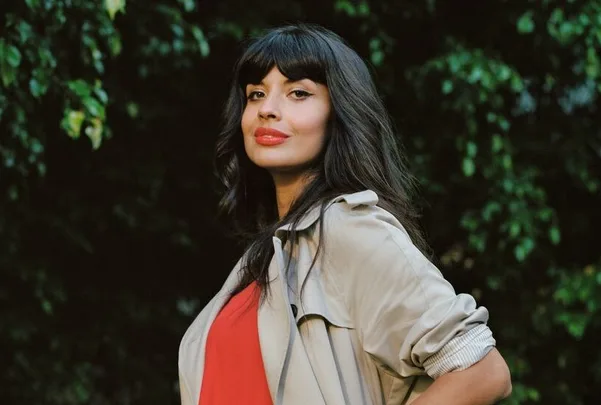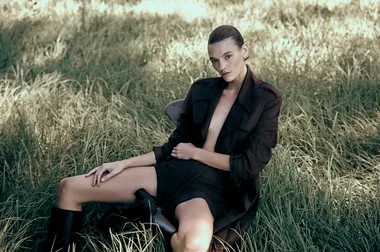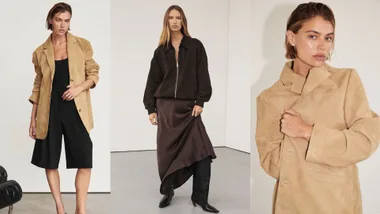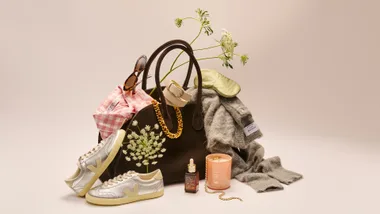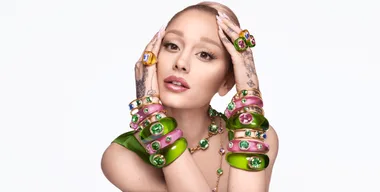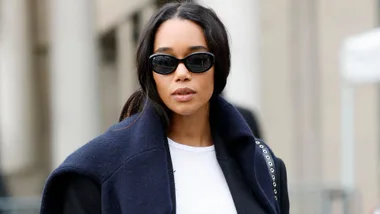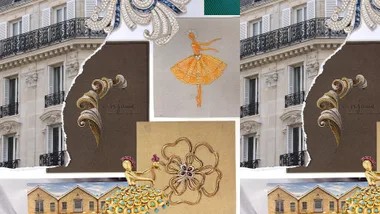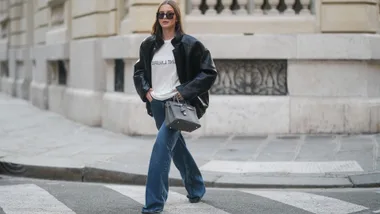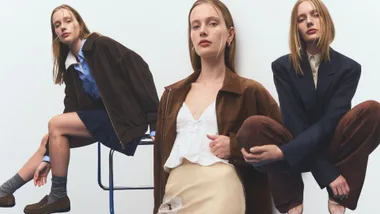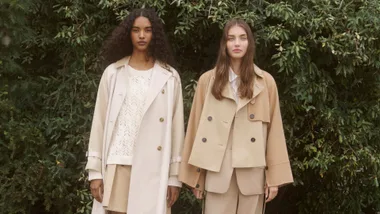When Jameela Jamil signed on for Tommy Hilfiger’s new campaign, we took notice. The actor and activist’s passion for inclusivity and transparency from celebrities and brands is well-known, so if Jamil is attaching her name to a brand, they must be doing something right in that space.
When it comes to fashion, style isn’t everything anymore. As our anxiety around the planet’s health and our realisation that, contrary to what we’ve historically been told, all bodies should be valued and accepted, we’re moving away from shopping with brands that keep pushing airbrushed, white models and labels with no transparency around production toward those that celebrate diversity and champion sustainable practice.
When we looked into Tommy Hilfiger‘s new campaign, Moving Forward Together, we saw a group of influential talent that stood for something – stood for diverse representation, being proud of your individuality and breaking down everything from stigmas to “how things are”. It makes sense that Jamil has partnered with Tommy Hilfiger on this campaign – she has long taken a stand against fat-shaming, body-shaming and the way in which bodies are edited online.
We chatted to Jamil about the campaign, and her take on the future of fashion in these spaces.
What drew you to the Tommy Hilfiger Moving Forward Together campaign?
Their shift over the past 5 years towards inclusivity and change. I’m a big fan of those who wield their power to not only learn, but to educate others too. To me, they embody progress. And progress, not perfection, is the road to practical and lasting change.
I also loved that they were willing to not airbrush me; and they really took the advocacy element of our participation seriously, by having us write essays and modules around the causes we were passionate about. Also, Indya Moore was in the campaign who I am completely obsessed with. So that was at least 50 percent of my decision making.
Sustainability is a huge buzz word of late. How important do you feel brand sustainability as a trend is to our fight against climate change?
It’s not a trend it’s a way of life now. We simply cannot carry on the way we did before. I love encouraging people to buy for the long term. I have always bought stuff that I knew I was going to own for decades. I’ve never been into trends and “must have” items. A lot of the clothes in the collection I will be wearing into my eighties. The shift is going to be incremental, as education and empathy grows around the subject, and our responsibility as consumers is to only fund/follow the brands that are taking impressive steps to be more sustainable and responsible.
When did you first realise you needed to make life changes to support the environment, can you tell us about that moment, particularly regarding fashion?
There was no moment, I think, because of activists, scientists and David Attenborough documentaries, I’ve been gradually growing towards it over the past decade. It’s why I’m very careful about which brands I partner with. I rarely put my name to anything because you have to be making a huge effort towards making the world a better place for me to go anywhere near you.
I know the perfect brand doesn’t exist, but I make space for those who are throwing as much as they can at progress. And also, regarding fashion I come from a family where the women keep everything. They only buy things they love to death, and then they one day hand it down to their daughters/nieces. It’s part of my culture. That’s a big part of my nature so I shop thoughtfully.
You’re at the forefront of body positivity and inclusivity activism. What do you think needs to change in 2021 in this space?
I’m not at the forefront of body positivity, and I’ve been saying this for years and years now… that is not my movement. It’s really frustrating that I keep being centered in a movement that is for and by fat women and disabled women. It is not my place to take up space in their socio-political work. I support their work from the side.
I work in body neutrality. Which is a complete divorce from opinion of the body whatsoever. It’s designed to allow the body to just be what it is, a vehicle for you to get from A to B. Not a billboard of your worth and health for others to judge as the patriarchy and capitalism would want us to view it.
What needs to change is how we consume. We need to be more thoughtful. We need to stop funding companies that don’t care about diversity. We need to block and mute the ones who do not represent modern values. Hitting them in the wallet is how they learn.
We need to get loud and push for more representation from our brands. Where are the disabled people in mainstream media? Why are there so few in our magazines when there are so many living in this world? Why do we not question that more often?
We need to pressure people with large platforms to speak up and raise awareness and use their pulling power with big brands to push them for change.
We need to stop bloody airbrushing. It’s so deeply problematic and ableist and ageist and fatphobic and racist and misogynist. The archetype of the perfection airbrushing promotes, hates women. It hates our natural form, and it is used as a tool to make us hate our natural form because unhappy people tend to buy more. So they keep us permanently unhappy so we will keep consuming. It’s a scam of deliberately impossible beauty standards to harm our self-esteem.
As part of Future Learn, you presented a course on body neutrality. Can you explain this philosophy to Marie Claire readers? Do you feel we can ever achieve true body neutrality in this society?
It’s seeing your body as nothing more than a machine. My body is now something I fuel up and look after. I don’t starve. I don’t over exercise. I look at it as something I need to look after as I would a car. I don’t look in many full length mirrors and I don’t consider it anyone else’s business, or even my business as to whether or not I meet today’s beauty standards.
My body is a life tool, not an ad.
The Tommy Hilfiger Moving Forward Together campaign is live on site now. You can see more here.
